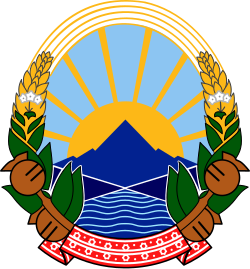| Total population | |
|---|---|
| 738 (2013 census) | |
| Regions with significant populations | |
| Sarajevo, Banja Luka | |
| Languages | |
| Macedonian, Bosnian, Croatian Serbian | |
| Religion | |
| predominantly Eastern Orthodox; all other religions present in North Macedonia | |
| Related ethnic groups | |
| Macedonians |
| Part of a series on |
| Macedonians Македонци |
|---|
 |
| Culture |
| By country |
| Subgroups |
| Religion |
| Language |
| Other |
Macedonians in Bosnia and Herzegovina refers to the group of ethnic Macedonians who reside in Bosnia and Herzegovina.
Contents
According to the last Yugoslav census in Bosnia and Herzegovina of 1991, there were 1,596 Macedonians in the country. [1]
The 2013 census counted 738 members of the Macedonian national minority.
